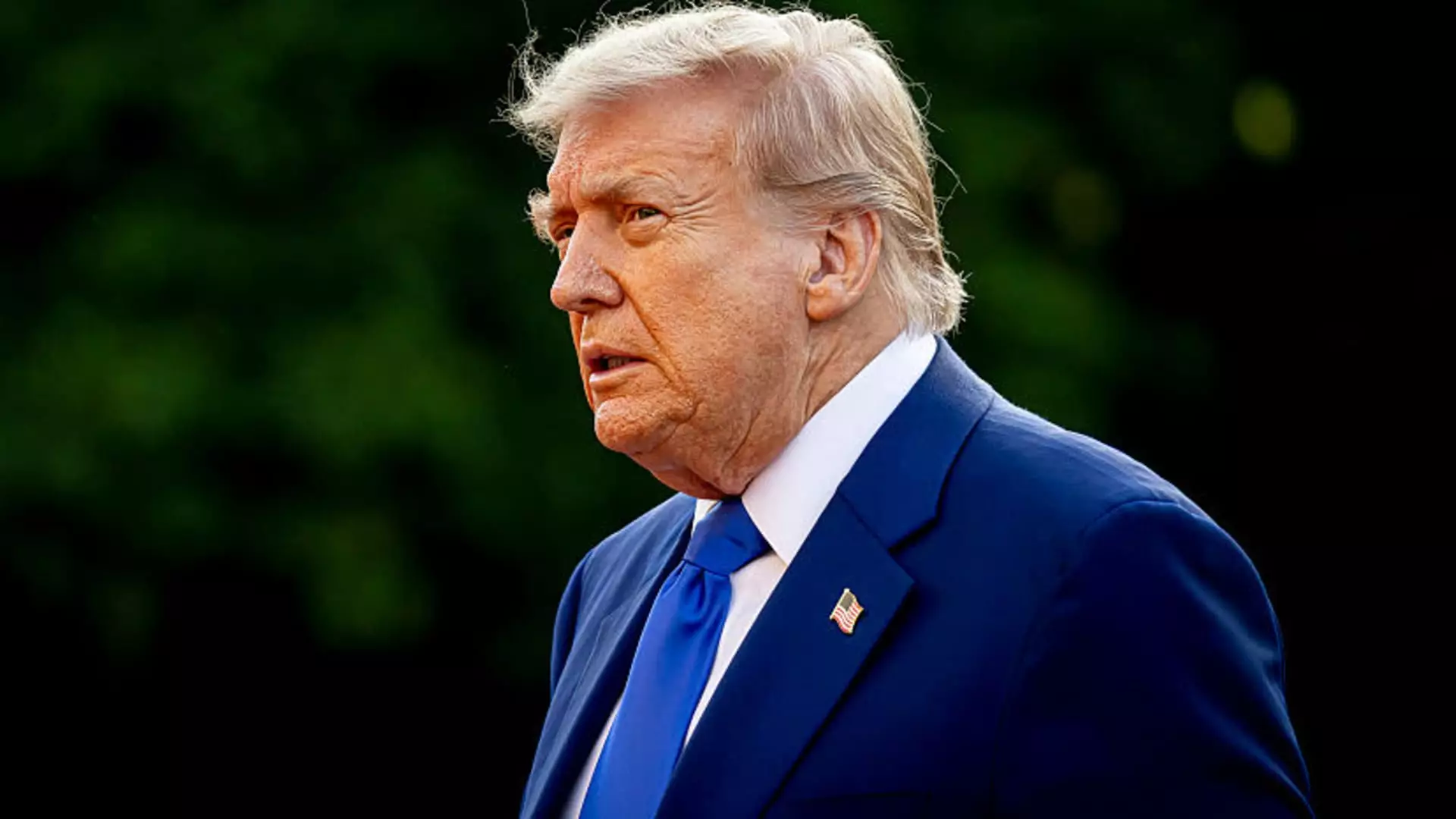The mercurial nature of President Donald Trump’s trade policies has become a hallmark of his administration. Recent statements from White House Press Secretary Karoline Leavitt indicate a willingness to extend deadlines for tariff negotiations, transforming a seemingly definitive schedule into an almost whimsical affair. When asked if Trump remains committed to the pressing deadline for trade deals by July, the response hinted at an unsettling flexibility: “That date is not critical.” This raises pressing questions about the long-term economic strategy—or the lack thereof—in terms of reciprocal tariffs and trade agreements that are meant to bolster American industry.
Hiding behind this façade of adaptability is an unsettling truth: uncertainty reigns supreme in international trade negotiations. The White House’s assertion that Trump can unilaterally decide on tariff rates despite an impending deadline exemplifies an administration that is navigating by feel rather than sound economic principles. It’s not merely about striking deals but understanding the intricate web of global economics that doesn’t bend easily to the whims of political theater. If America’s bargaining power hinges solely on unilateral tariffs and vague deadlines, the specter of retaliatory measures looms large, threatening American industries and workers in the process.
Tariffs as Bargaining Chips: Double-Edged Sword
When discussing tariff diplomacy, it’s crucial to understand that such measures can often backfire. The president’s initial threat of imposing staggering 50% tariffs on the European Union could be seen as a bold statement, yet it’s fraught with peril for American consumers and industries reliant on imports. The temporary pause announced recently seems more a tactical retreat than a strategic victory, demonstrating the administration’s inconsistency and reactive nature in trade policy.
As the July 8 deadline rapidly approaches—marking the end of a 90-day pause on “reciprocal” tariffs—investors and markets are left scrambling for clarity. The public statements from administration officials, such as Treasury Secretary Scott Bessent, suggest that extensions may be on the horizon. But what does this suggest for American businesses that are navigating these murky waters? They are left in a permanent state of limbo, unable to make long-term plans due to policies that shift like sand underfoot.
In the world of economics, stability typically fosters growth and investment. However, the current climate, characterized by a series of verbal sparrings and shifting deadlines, engenders an environment rife with apprehension. The question remains: at what cost do these tactics come? The sheer unpredictability of tariff negotiations poses a grave risk, encouraging companies to either scale back their ambitions or shift their operations abroad, leading to a decline in American manufacturing jobs.
Political Posturing vs. Real Responsibility
In the backdrop of these negotiations, there is a disconnect between political rhetoric and the realities of economic governance. Trump’s aides boast about impending trade agreements with countries like India, yet these proclamations often lack substance and specificity. Merely hinting at future deals serves to buoy stock prices in the short term but avoids the real need for accountability and substantial action.
Moreover, the promise of “90 trade deals in 90 days” has been reduced to mere whispers of frameworks, with only a couple of agreements dawdling in the pipeline and more often characterized by incomplete terms. Statements from economic advisors maintaining that good faith negotiations will result in the extension of deadlines appear disconnected from the reality of pending deal closures. It leads to a cynical belief that policymaking has become a game of public relations rather than earnest governance aimed at rejuvenating the economy.
Ultimately, when political maneuvering outweighs pragmatism in trade negotiations, it compromises the very workers that the administration claims to champion. Rather than serving the interests of the American worker, this tactic risks undermining livelihoods in favor of an administration’s fluctuating ambitions. For any semblance of progress, the focus must shift from theatrical posturing to meaningful policies that truly benefit both the economy and its most vulnerable participants.


Leave a Reply